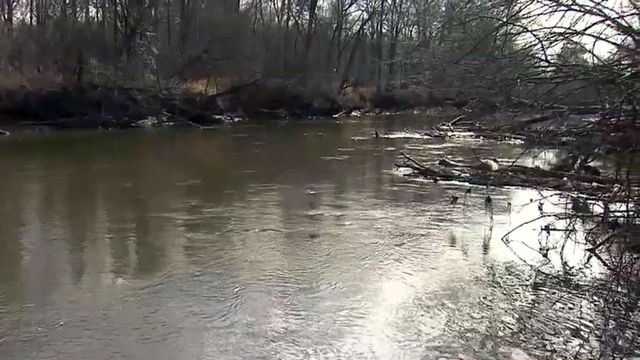Rollback of federal protections could affect NC's drinking water
A federal decision to roll back Clean Water Act protections could affect water quality in central North Carolina - everything from drinking water to algae in lakes.
Posted — UpdatedThe move by the Trump administration was hailed by farmers and developers, who say the old regulations were burdensome and complex. But environmentalists say the change puts drinking water at risk.
"A wetland that was just a puddle sometimes on a farm or just a ditch that sometimes had water and sometimes didn’t" was covered by the rules before, said Shawn Harding, president of the North Carolina Farm Bureau. "We felt like it was an overreach, and it was causing our farmers to really not be able to do what they need to do on their land."
Krista Early, who directs Environment North Carolina’s campaigns to protect the state’s waterways and drinking water, said the rollback undoes 50 years of progress.
"It strips regulations that have protected our drinking water and our wetlands and our feeder streams throughout the entire nation," Early said
Intermittent streams and isolated wetlands are no longer protected from pollution or development. Yet, Early said, they still feed into the creeks and rivers that become drinking water from many parts of the state. When it rains, the contaminated runoff will lead to more fish kills, chemical spills and toxic algae blooms, she said.
"With the weakening of the Waters of the U.S. rule and the Clean Water Act, we are now looking at regulations that have currently been in place in North Carolina no longer being in place, and there’s no way for us to come back from this because our hands are tied," she said.
Harding said the new rules give farmers clarity about what they need to do to avoid breaking the law.
The state Department of Environmental Quality also condemned the rollback.
"The rule [change] clearly ignores the science-based recommendations provided by this department to ensure the protection of the state’s water quality, unique natural resources and the economic benefits associated with them," DEQ Secretary Michael Regan said in a statement.
Regan noted that wetlands cover an estimated 5.7 million acres in North Carolina – about 17 percent of the state.
Related Topics
• Credits
Copyright 2024 by Capitol Broadcasting Company. All rights reserved. This material may not be published, broadcast, rewritten or redistributed.





